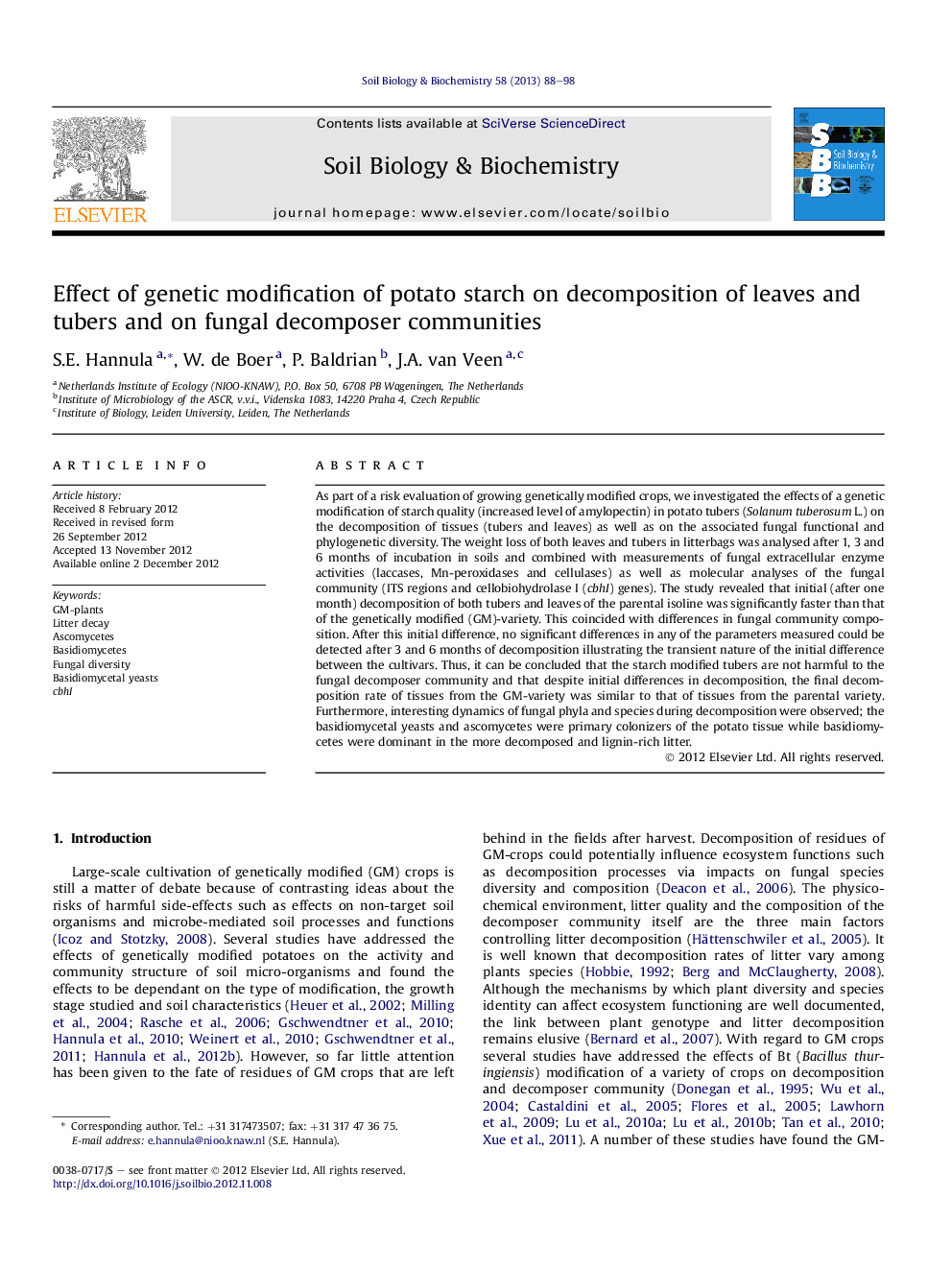| کد مقاله | کد نشریه | سال انتشار | مقاله انگلیسی | نسخه تمام متن |
|---|---|---|---|---|
| 2024873 | 1542626 | 2013 | 11 صفحه PDF | دانلود رایگان |

As part of a risk evaluation of growing genetically modified crops, we investigated the effects of a genetic modification of starch quality (increased level of amylopectin) in potato tubers (Solanum tuberosum L.) on the decomposition of tissues (tubers and leaves) as well as on the associated fungal functional and phylogenetic diversity. The weight loss of both leaves and tubers in litterbags was analysed after 1, 3 and 6 months of incubation in soils and combined with measurements of fungal extracellular enzyme activities (laccases, Mn-peroxidases and cellulases) as well as molecular analyses of the fungal community (ITS regions and cellobiohydrolase I (cbhI) genes). The study revealed that initial (after one month) decomposition of both tubers and leaves of the parental isoline was significantly faster than that of the genetically modified (GM)-variety. This coincided with differences in fungal community composition. After this initial difference, no significant differences in any of the parameters measured could be detected after 3 and 6 months of decomposition illustrating the transient nature of the initial difference between the cultivars. Thus, it can be concluded that the starch modified tubers are not harmful to the fungal decomposer community and that despite initial differences in decomposition, the final decomposition rate of tissues from the GM-variety was similar to that of tissues from the parental variety. Furthermore, interesting dynamics of fungal phyla and species during decomposition were observed; the basidiomycetal yeasts and ascomycetes were primary colonizers of the potato tissue while basidiomycetes were dominant in the more decomposed and lignin-rich litter.
► Decomposition rate of leaves and tubers of starch modified GM-potato was evaluated.
► Initial decomposition rate differed between GM- and parental variety.
► Initially, fungal communities were different between GM- and parental variety.
► After 6 months no differences were found.
► Fungal phyla and species were changing dynamically during decomposition.
Journal: Soil Biology and Biochemistry - Volume 58, March 2013, Pages 88–98